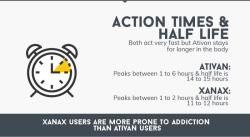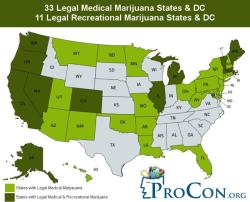What is the best meal replacement diet plan?
Determining the best meal replacement diet plan depends on individual goals, preferences, and health considerations. Here are several popular meal replacement options and factors to consider when choosing the right plan for you:
Nutrient Balance: Look for a meal replacement plan that provides a balance of macronutrients (carbohydrates, proteins, and fats) and essential vitamins and minerals. It should meet your daily nutritional needs to ensure overall health.
Caloric Content: Consider your daily calorie requirements and choose a meal replacement plan that aligns with your goals, whether it's weight loss, maintenance, or muscle gain.
Protein Source: Ensure that the meal replacements contain a sufficient amount of high-quality protein to support muscle maintenance and growth. Whey, casein, soy, pea, and hemp protein are common sources.
Low Sugar and Additives: Opt for meal replacement products with low sugar content and minimal additives. Some products may contain artificial sweeteners or preservatives, so read labels carefully.
Fiber Content: Adequate fiber intake is crucial for digestive health. Look for meal replacements with added fiber to support digestion and help you feel full.
Whole Food Ingredients: Choose meal replacements that incorporate whole food ingredients to ensure a diverse range of nutrients and minimize reliance on processed ingredients.
Taste and Texture: Personal preference plays a significant role in adherence to a meal replacement plan. Try different products to find ones with flavors and textures you enjoy.
Customization: Some plans offer flexibility, allowing you to incorporate whole foods or snacks alongside meal replacements. This can make the plan more sustainable and adaptable to your lifestyle.
Cost: Consider the cost of meal replacement products compared to regular meals. Some plans may be more budget-friendly than others.
Medical Considerations: Consult with a healthcare professional before starting any meal replacement plan, especially if you have pre-existing health conditions or take medications.
Popular meal replacement options include shakes, bars, powders, and even complete meal replacement programs. Examples include Shakeology, Soylent, Huel, and SlimFast. It's important to note that while meal replacements can be convenient, a balanced and varied diet of whole foods is generally recommended for long-term health.
Ultimately, the best meal replacement diet plan is one that aligns with your individual needs, preferences, and lifestyle while providing the necessary nutrients for your well-being. Always consult with a healthcare professional or a registered dietitian for personalized advice based on your specific health goals and conditions.
Meal Replacement Diet Plans: A Balanced Perspective
1. "Best" is subjective: There's no single "best" meal replacement diet plan. Different plans suit various needs, preferences, and health conditions. Popular options include:
- Commercial prepackaged: Convenient but can be costlier and less versatile.
- Medically supervised: Tailored to specific needs and monitored by healthcare professionals.
- DIY meal replacements: Allows flexibility and control over ingredients but requires planning and effort.
The "best" plan is the one that fits your individual needs, tastes, and lifestyle while ensuring adequate nutrition and sustainability.
2. Weight Management and Nutrition:
- Calorie Control: Meal replacements often have controlled portions and lower calories, leading to a calorie deficit and potential weight loss.
- Convenience and Portion Control: They simplify meal planning and prevent overeating, aiding weight management.
- Nutrition: Some provide essential nutrients like vitamins, minerals, and protein, but may lack fiber and variety found in whole foods.
3. Potential Risks and Considerations:
- Nutritional Deficiencies: Overreliance on meal replacements can lead to deficiencies in vital nutrients like fiber, healthy fats, and micronutrients.
- Lack of Variety and Sustainability: Long-term adherence can be challenging due to limited food choices and potential boredom.
- Underlying Health Conditions: Consult a doctor before starting any meal replacement plan, especially if you have existing health conditions.
- Cost: Commercial prepackaged options can be expensive compared to whole-food meals.
Overall:
Meal replacement diets can be effective for weight management in the short term but should be approached cautiously. Consider incorporating whole foods for long-term sustainability and consult a healthcare professional or registered dietitian for personalized guidance.
Remember, the "best" approach is a balanced and sustainable one that prioritizes both weight management and overall health.
I hope this information helps!













